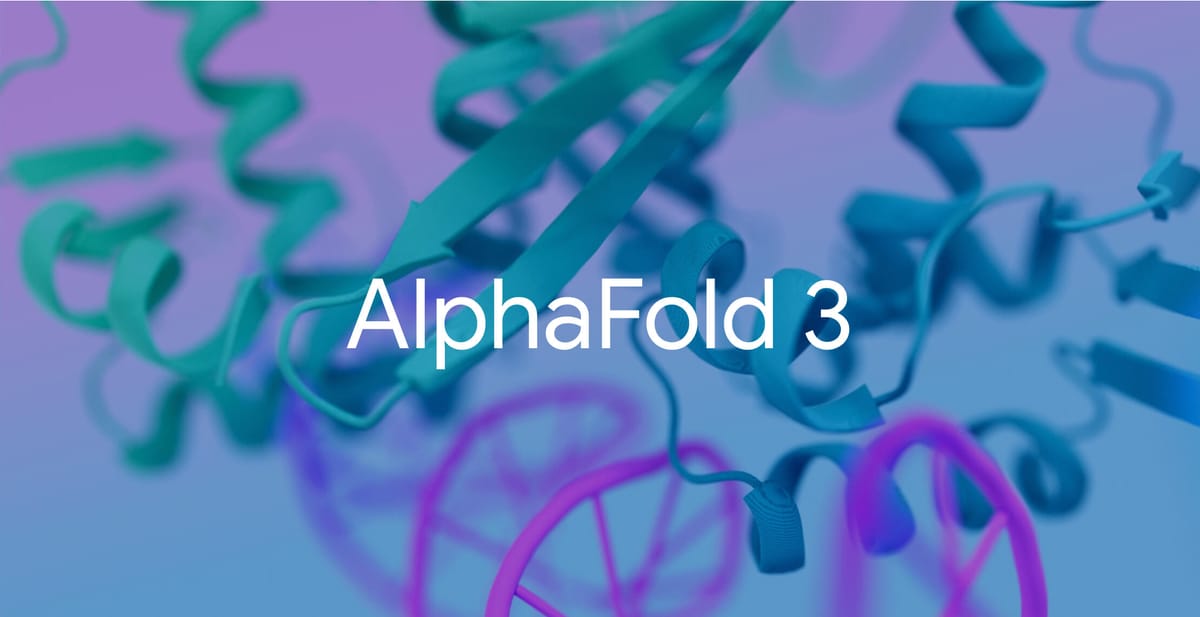
Google DeepMind and Isomorphoc Labs have made the source code and model weights for AlphaFold 3 available. This comes just weeks after the 2024 Nobel Prize in Chemistry was awarded to the system's creators, Demis Hassabis and John Jumper. The decision to open source AlphaFold 3 for academic use is a significant pivot from the intial release plan.
Why It Matters: Unlike its predecessor, AlphaFold 3 can model proteins interacting with other molecules, a crucial capability for understanding how drugs work at the molecular level. Initially, DeepMind justified keeping AlphaFold 3 on a closed-access server—the AlphaFold Server—to balance research use and protect commercial ambitions, particularly through collaborations with Isomorphic Labs, which focuses on real-world drug design. This led to criticism that it impeded drug discovery by limiting direct access for scientists.
Catch Up Quick: Up until now, AlphaFold 3 was only available for non-commercial use via alphafoldserver.com. However, DeepMind faced backlash for withholding AlphaFold 3's code and model weights, which critics argued hindered transparency and reproducibility. Following mounting criticism from the scientific community, DeepMind promised an open-source version within half a year—a promise that it has now fulfilled. Now, academic researchers can download all necessary code for AlphaFold 3 inference and request access to the model parameters
What’s New: Now, academic researchers can not only study protein structures but also model complex protein-drug interactions. However, the model weights are restricted to scientists with academic affiliations, available upon request, under the condition that they are used solely for non-commercial research. The terms explicitly prohibit the use of AlphaFold 3's model parameters or outputs for commercial activities, including training similar biomolecular models, ensuring DeepMind maintains a level of control over the technology's commercialization.
Zoom Out: The US is in an all out AI arms race with China across multiple fronts. Chinese tech giants like Baidu and ByteDance have already developed similar AlphaFold 3-inspired models. Despite the terms of use explicitly prohibiting commercial use, open sourcing it risks allowing competitors to further replicate and advance similar capabilities. Still, DeepMind's release of AlphaFold 3's code is a win for academic freedom and scientific collaboration, opening doors for researchers to push the boundaries of protein modeling and drug discovery.

